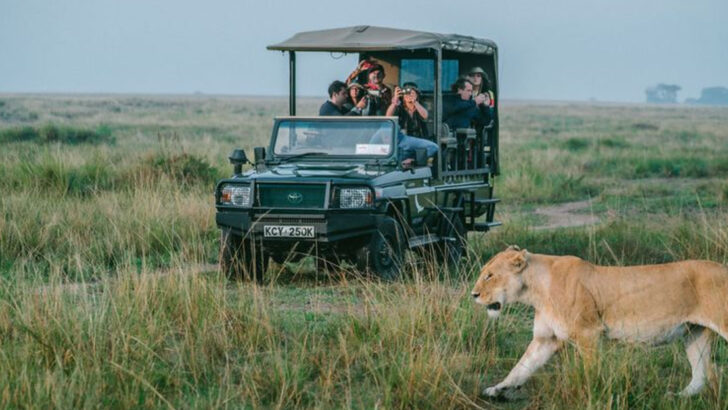You’re sitting in an open jeep, ten feet from a full-grown lion—and no one’s running for their life.
Sounds crazy, right? But it happens every day on safari, and the lion? Barely a glance. No charge. No roar. Just a slow, regal stare… and then a yawn.
So why don’t these apex predators treat tourists like walking snacks? It’s not luck. And it’s not magic. It’s a mix of wild instinct, learned behavior, and smart human strategy.
Here are 12 surprising reasons lions usually keep their claws to themselves—even when you’re close enough to count their whiskers.
Natural Instincts
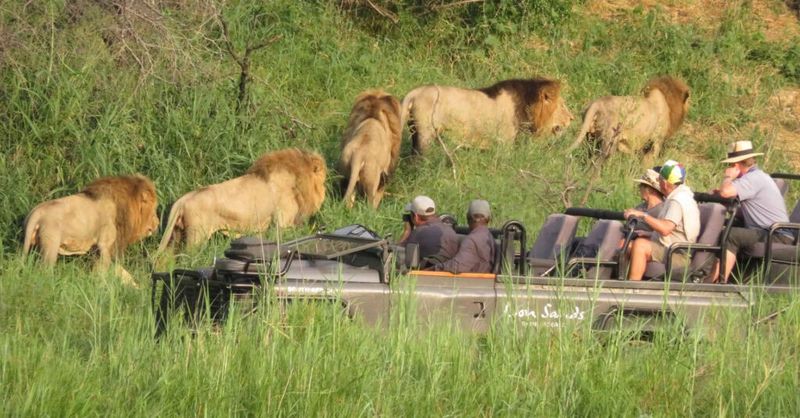
With a keen sense of survival, lions possess instincts that prioritize preserving energy for essential hunts. Their natural tendency is to avoid unnecessary conflicts, especially with unfamiliar objects like safari vehicles. This behavior stems from evolution, where lions learn to conserve their strength for genuine threats or prey.
While tourists may come close, lions often perceive vehicles as non-threatening, inanimate objects. This perception reduces potential aggression. Furthermore, lions have adapted to coexist with the presence of humans, understanding that these encounters typically do not pose a risk.
Understanding these instincts offers insight into harmonious safari experiences.
Habituation to Vehicles
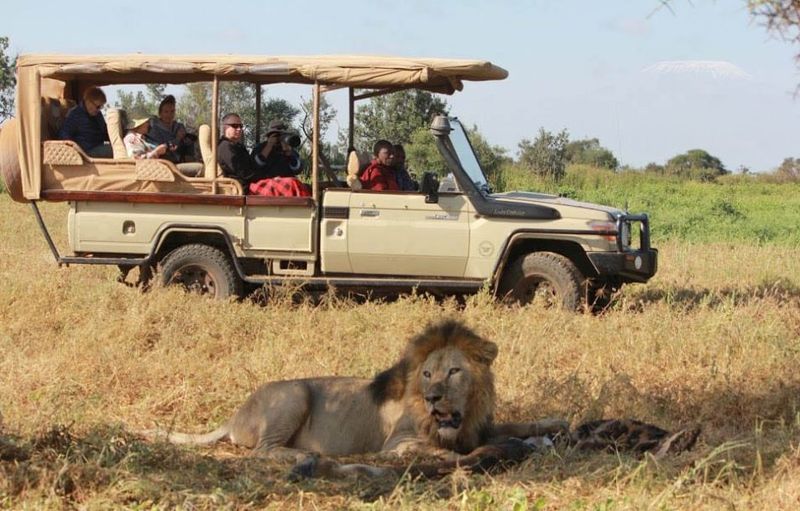
Over time, lions have become accustomed to the presence of safari vehicles in their habitats. This habituation means they often see vehicles as a regular part of their environment, rather than a threat.
Lions have learned that these vehicles do not harm them or their pride, allowing for a peaceful coexistence. This familiarity reduces the likelihood of aggressive behaviors towards tourists.
Moreover, the consistent presence of vehicles without negative interactions reinforces their non-threatening perception, making them view vehicles as background elements in their daily lives.
Expert Guides
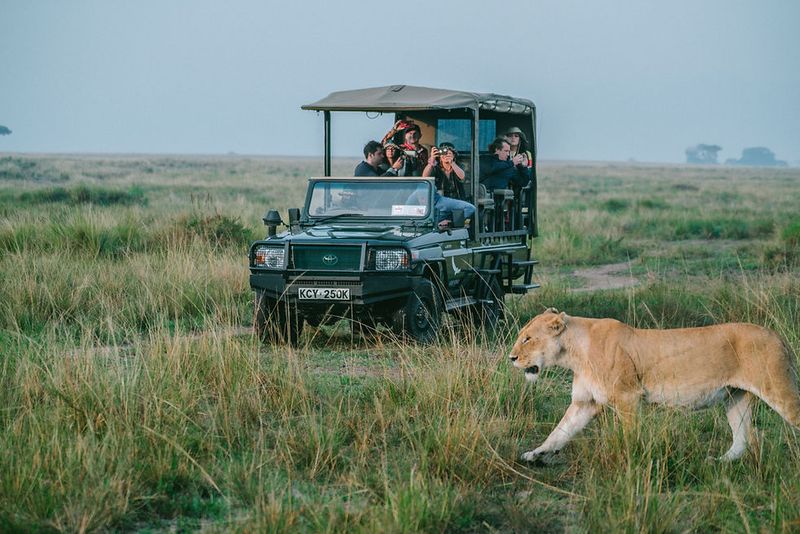
Guides play a crucial role in ensuring tourist safety during safaris. Their deep understanding of lion behavior allows them to predict and prevent potential conflicts.
By maintaining proper distances and interpreting lion body language, guides keep tourists safe while respecting lion territories. They educate tourists about appropriate behavior, minimizing disturbances.
This guidance fosters mutual respect between lions and humans, adding a layer of security. With their expertise, safari experiences remain thrilling yet secure, allowing tourists to appreciate the majestic beauty of lions without compromising safety.
Lions Avoiding Unfamiliar Prey
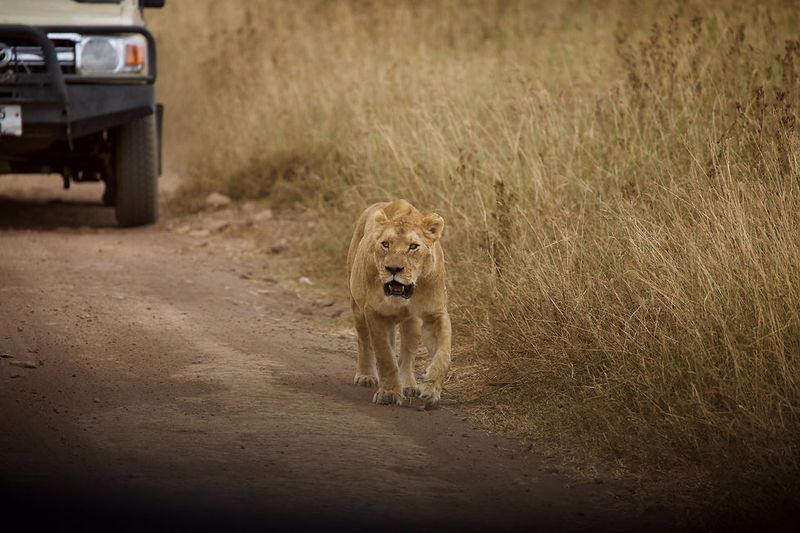
Lions are apex predators with specific prey preferences, typically targeting animals they are familiar with. Tourists, especially within vehicles, do not resemble their usual prey, reducing any instinctual drive to attack.
These big cats tend to avoid unfamiliar creatures, as they prioritize hunting known species like zebras or antelopes. The presence of tourists does not trigger their predatory instincts, as humans are not part of their natural food chain.
This selective predation helps maintain a peaceful atmosphere during safari tours, where lions coexist with tourists without perceiving them as potential meals.
Regulated Safari Practices
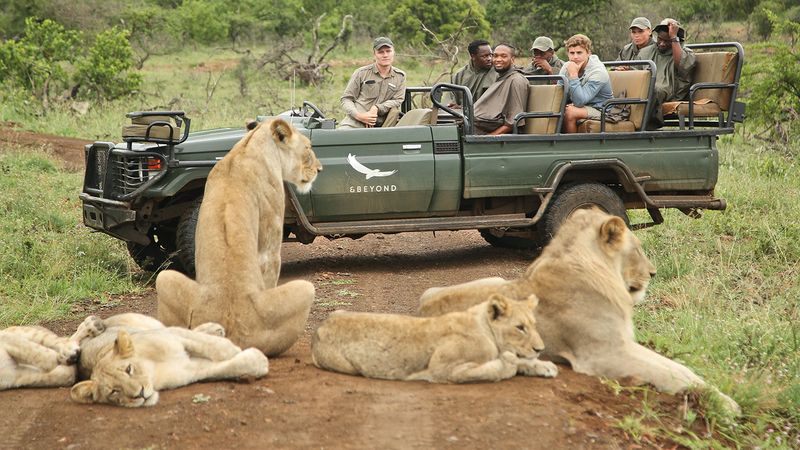
Strict regulations govern safari operations, ensuring both tourist safety and wildlife conservation. Vehicles are required to stay on designated paths, minimizing disturbances to lion habitats and reducing stress.
These regulations include maintaining safe distances from wildlife, preventing close encounters that might provoke aggression. By adhering to these guidelines, safaris preserve the natural behaviors of lions while offering exciting yet safe wildlife experiences.
Such practices help create a balance where tourists can observe lions without causing harm or disruption, contributing to the overall safety of safari adventures.
Lions’ Territorial Nature
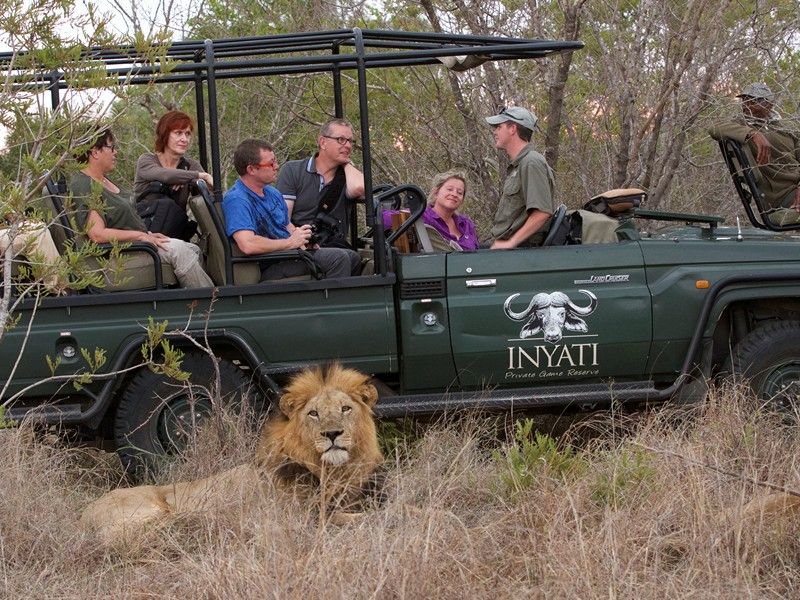
Lions are inherently territorial animals, often focusing their energy on defending their domain from rival predators. Tourists, especially in vehicles, do not threaten their territory, allowing lions to remain unagitated.
Their focus on territorial disputes with other lions or predators diverts attention away from tourists, who are seen as non-intrusive. This territorial nature ensures that lions prioritize real threats, maintaining a peaceful environment for safari-goers.
Understanding this aspect of lion behavior helps explain why tourists can enjoy observing these majestic creatures without fear of attack.
Tourists in Group Safety
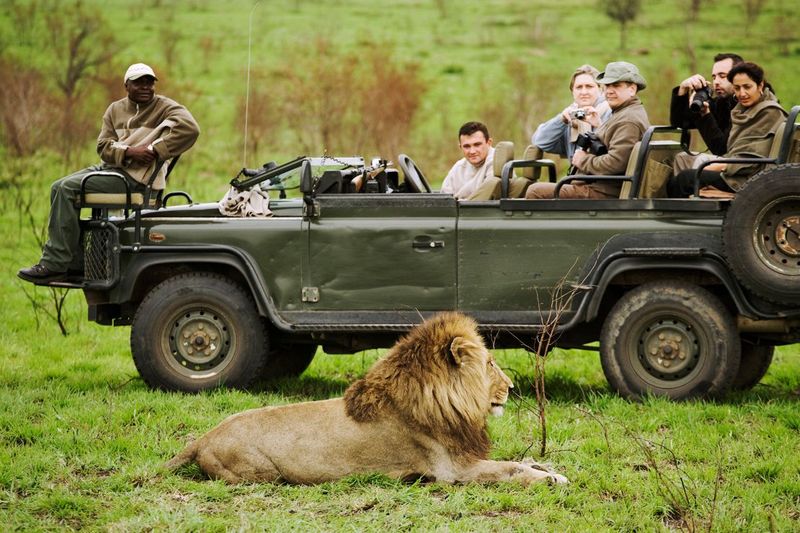
Traveling in groups provides an added layer of safety during safaris. Lions perceive large groups, especially within vehicles, as formidable and potentially dangerous, discouraging any aggressive actions.
This perceived strength in numbers works to the advantage of tourists, as lions typically avoid engaging with groups that seem overwhelming.
Moreover, group dynamics allow for shared vigilance, ensuring that all members are aware of surroundings and potential risks. This collective awareness contributes to the overall safety of safari experiences, allowing tourists to enjoy close encounters with lions without fear.
Lions’ Nocturnal Habits
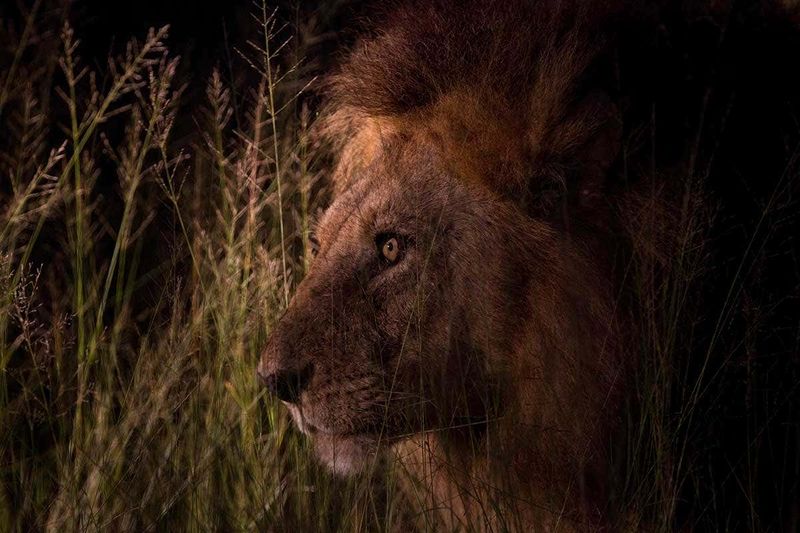
Lions are predominantly nocturnal hunters, spending daylight hours resting and conserving energy. Their peak activity occurs at night, when tourist safaris are typically not operating.
During the day, when safaris take place, lions are often seen lounging, showing little interest in exerting energy. This natural rhythm aligns well with safari schedules, reducing chances of aggressive encounters.
This diurnal behavior ensures that, during safari hours, lions are more likely to be calm and uninterested in disturbances, enhancing the safety and enjoyment of daytime tours.
Lions’ Social Structure
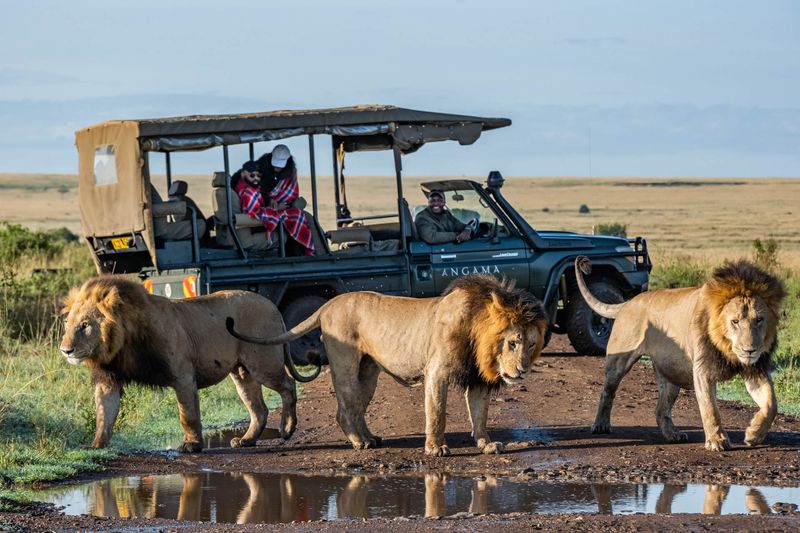
The social structure of lions, living in prides, influences their interactions with the environment. Within these close-knit groups, lions focus on social bonds and collective activities.
This social dynamic reduces the likelihood of aggressive behavior towards external threats, including tourists. The presence of their pride offers security, allowing lions to remain calm and less threatened by human activity.
Understanding this social behavior helps explain why lions often appear relaxed and unfazed by safari groups, as their focus lies primarily within their pride’s interactions and well-being.
Lions’ Focus on Natural Prey
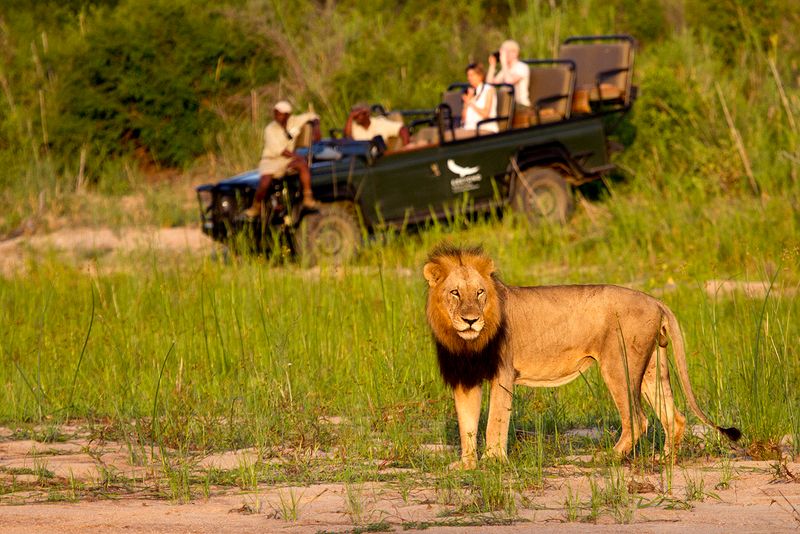
Lions are instinctive hunters with a preference for natural prey found in their ecosystem. This focus on traditional game like zebras or wildebeests keeps their attention away from non-threatening entities like tourists.
Their highly specialized hunting skills are tailored towards these prey species, ensuring that tourists remain outside their predatory interests. This innate focus helps maintain a peaceful coexistence during safaris, where lions continue their natural role in the ecosystem.
Such behavior emphasizes the lions’ commitment to their ecological niche, providing tourists with safe and non-intrusive wildlife experiences.
Tourist Awareness Education
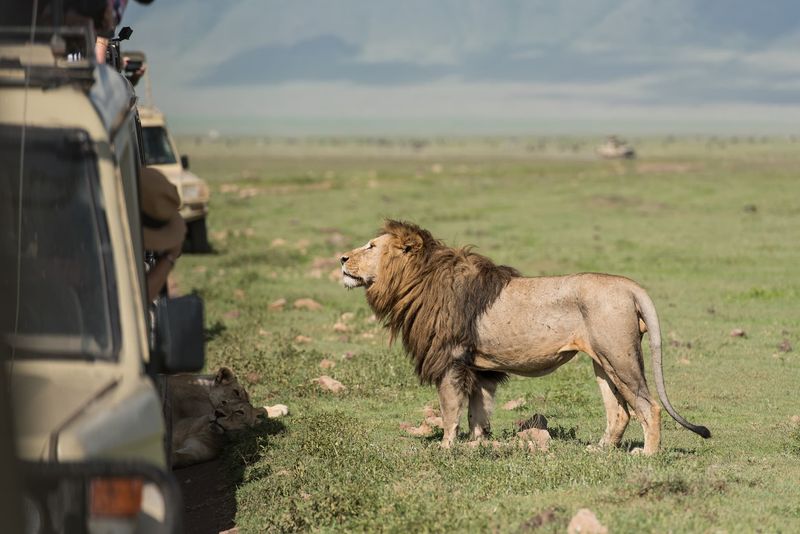
Education plays a key role in safari safety, with tourists receiving briefings on how to behave in lion habitats. These sessions ensure tourists understand how to act responsibly, minimizing disturbances.
Awareness of lion behaviors and appropriate conduct reduces the risk of provoking unwanted attention. Guides emphasize the importance of remaining calm and following instructions during safari tours.
Such education fosters a respectful interaction between tourists and lions, enhancing the overall safety and enjoyment of the experience. By being informed, tourists contribute to a harmonious and secure safari environment.
Conservation Efforts
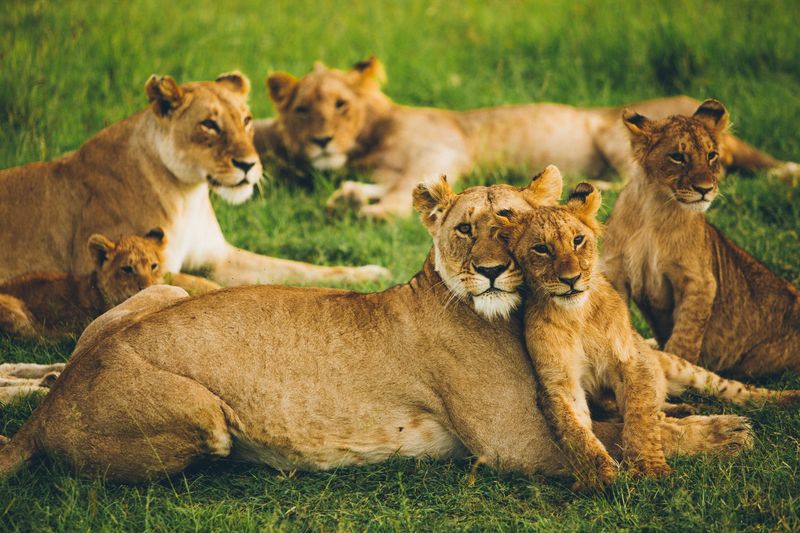
Conservation initiatives play a vital role in ensuring the peaceful coexistence of humans and lions. By protecting natural habitats and regulating human interference, these efforts maintain the balance needed for safe safari experiences.
Such initiatives focus on preserving lion populations while promoting eco-friendly tourism practices. This dual approach ensures the sustainability of both wildlife and tourist activities.
These conservation measures help tourists enjoy the magnificence of lions within a protected environment, where both species can thrive without conflict or danger, highlighting the importance of continued efforts in wildlife conservation.

